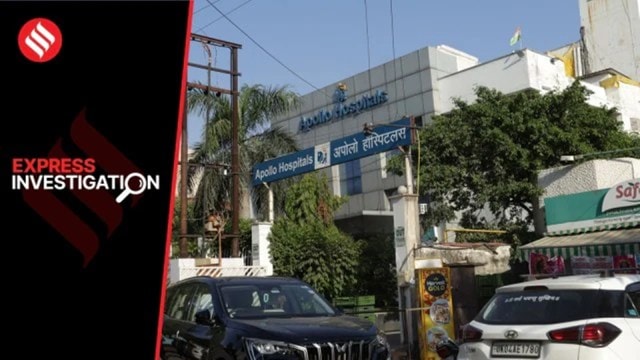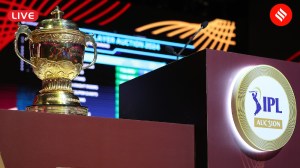Between filing the case and a charge sheet, it took Delhi Police less than two months this summer to wrap up their pursuit of an alleged kidney transplant racket linking Bangladesh and India. But this early zeal is no guarantee that justice will be delivered any time soon — given how a similar case from eight years ago has run into a wall, court records reviewed by The Indian Express show.
From a missing document to multiple adjournments sought by the Investigating Officer (IO), the replacement of the IO himself as late as this year, and the matter being heard by a succession of eight judges in eight years — the case of 2016 is still stuck with 32 hearings and no end in sight.

That’s not all.
The Delhi court hearing the case has also raised several red flags over the investigation in the 2016 case, questioning the police at one point for relying on the hospital’s internal probe to clear its staff and management.
It also pulled up the investigators for what it perceived were lapses and delays:
On March 7, 2017, nine months after the FIR was registered on June 18, 2016, Metropolitan Magistrate Gomati Manocha, who was the second judge to hear the case, noted: “All that the IO has done is just an eye wash. Such perfunctory approach of the IO in conducting the investigation of this case cannot be overlooked.”
On October 26, 2023, Metropolitan Magistrate Twinkle Chawla, the seventh judge to preside over the matter, issued a warrant against the IO. “…IO was directed to appear in person along with the case diary. However, he is absent and no exemption has been moved. Issue B/Ws (bailable warrant) against IO,” the judge ordered.
Absent complaint presents dilemma
The 2024 case, The Indian Express reported Monday, involved ten accused who allegedly fudged documents and misused foreign approvals for 20-25 transplants conducted by a Delhi surgeon at Yatharth and Apollo hospitals in Noida. On Tuesday, this newspaper reported on the links of a key accused, a Bangladeshi interpreter, that led to questionable tie-ups between hospitals and smaller healthcare firms to drive business. All the accused are on bail.
Story continues below this ad
In the 2016 case, records show, the charge sheet was filed on December 12 that year related to alleged illegal kidney transplants conducted at Indraprastha Apollo Hospital in Delhi in which “middlemen” and three personal secretaries of doctors were among those arrested. All the ten accused denied the allegations in court and are on bail.
One of the key reasons for the lack of progress in the 2016 case, records show, was the probe’s failure to furnish a basic requirement for cases under the Transplantation of Human Organs and Tissues (TOHO) Act: a complaint from the “Appropriate Authority” — in this case, an officer authorised by the Delhi government.
This delay, from August 1, 2018 when the police brought the matter to the court’s notice, prompted Metropolitan Magistrate Twinkle Chawla to note on February 8 this year that “even after lapse of almost 5 years from the order of further investigation, supplementary charge sheet as well as the complaint (under section 22 of the) TOHO Act is still awaited”.
In between, the police sought multiple adjournments, mainly citing the time needed for sending a request to the Delhi government. In this context, records show that between December 22, 2018, and March 4, 2020, the IO missed four of seven scheduled hearings.
Story continues below this ad
Finally, on March 4, 2020, the IO and the then Delhi Health department Deputy Secretary assured in court that compliance “shall be filed at the earliest”. However, on May 11, 2022, the Deputy Secretary told Metropolitan Magistrate Dr Karan Choudhary, the sixth judge to preside over the case, that the matter was “pending”. Slamming the “lackadaisical attitude,” the court warned that “this court shall be constrained to attach the salary of erring officials”. In the next hearing, on July 1, 2022, the IO submitted an “authority letter” in this regard — its contents were not revealed. But on February 8 this year, records show, the court noted that “perusal of the ordersheets shows that complaint u/s 22 TOHO Act is still awaited”.
Delays — and many more delays
In fact, records from one critical phase of these hearings capture the mess in which the 2016 case is stuck.
The records show that the previous judge who heard the case, Metropolitan Magistrate Twinkle Chawla, pushed to expedite proceedings by scheduling hearings at shorter intervals — but in vain.
In three hearings conducted within five months last year, the IO sought more time for investigation. Three more hearings later, with similar requests every time, the court ordered the IO to “appear in person along with the case diary” — again, in vain.
Story continues below this ad
On October 26, 2023, the court issued a warrant against the IO and also found “no substantial advance in the investigation”. In the next hearing nearly two months later, with the IO still absent, the court instructed the police to forward its order to the DCP in charge.
When the court took up the matter again, on February 1, 2023, the public prosecutor informed that the IO’s investigation had “discrepancies”. On February 8 this year, a report was submitted by the DCP stating the IO had been removed. The new IO requested “some time”, records show, but the court put its foot down and “deemed necessary that further investigation be personally monitored by the concerned DCP”.
Why court flagged probe
Records of the 2016 case show that the court raised red flags in the investigation, too.
On March 7, 2017, the IO informed the court of Metropolitan Magistrate Gomati Manocha that a critical piece of evidence was missing: records of the hospital’s authorisation committee that green-lighted the transplants.
Story continues below this ad
Besides, the public prosecutor said the police “shall proceed against the hospital staff/ management only if something incriminating comes on record against them” in the authorisation committee’s report. He also said the hospital had formed its own committee to examine the role of its staff and administration in the transplant.
“In these circumstances”, the prosecutor argued, “no further investigation regarding the role/ complicity of hospital administration is required”. The IO will review the report prepared by the committee and “if need be further investigation shall be conducted,” the prosecutor said.
The court did not agree. “It is unlikely that in the absence of any complicity of the hospital, hospital administration, doctors, illegal kidney transplant at such a large scale could have been carried out in the hospital,” the court stated. “It seems ironical that the IO is awaiting the conclusion of inquiry by the committee constituted by hospital itself to examine its own role and the role of the hospital staff/ administration in the conduct of illegal transplants,” it said while ordering “further investigation”.
The court also pointed to “incomplete” documentation collected by the IO “pertaining to majority” of recipients and donors, including paperwork on referrals, and prescriptions and tests.
Story continues below this ad
In the latest hearing, on September 19, Judge Aridaman Singh Cheema noted that further investigation is yet to be completed. He directed the IO to do so “and file a detailed report”.































